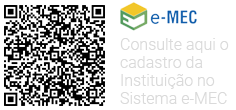


About
The Graduate Program in Health Promotion (PPGProSaúde) aims to train human resources that work in higher education, in interdisciplinary research and outreach activities that have a positive impact on health determinants. In this program one reflects on the skills needed to act transforming and promoting health.
Master's Course in Health Promotion, Human Development and Society
It discusses new strategies for promoting individual and collective health and has an interdisciplinary focus. The demand for this course is due to the growing number of professionals in areas related to health promotion and who are interested in working on the population's problems and needs, which cannot be resolved with a linear and disciplinary view. Health promotion is committed to improving the population's quality of life and solving the complex problems of contemporary society.
Master´s Title: Master in Health Promotion, Human Development and Society
Professionals from different areas of knowledge, with an interest in promoting health, human development and society.
Publications
- Human development
Study of human development centered on the expansion of well-being and as a process of expansion of individual freedoms that enables people to choose the life they want to have. This includes the social, economic, political and environmental dynamics necessary to ensure a variety of opportunities and the development of individual and group skills that expand the potential for healthy life choices, enhance autonomy, freedom, participation, well-being and citizenship.
- Public Policies, Society and Environment
Study of the complex problems that involve the quality of life in societies, focusing on social inequities, sustainable development, sectoral and interdisciplinary actions aimed at developing healthy public policies. It discusses the environment and society as territories capable of enhancing individual and collective development, pointing to the construction of lifestyles and public policies that promote health, including discussions on ethics, democracy, freedoms and reduction of inequities. It reflects on development seen as a process of expansion of individual freedoms, considering that its denial is a deficiency of the political system, which should take into account the civil rights and real opportunities of populations.
Research projects
The integrative projects of the Masters Course in Health Promotion, Human Development and Society
RESEARCH LINE : HUMAN DEVELOPMENT
INTERCULTURAL COMMUNICATION ABOUT HEALTH
Abstract: Health communication processes have been recognized by the World Health Organization (WHO) as determinants of quality and safety in the provision of care to users of health services. The role of communication in errors and adverse events is evident. Communication and the development of communication skills by health technicians and users is, however, a complex phenomenon. In addition to communication skills, it involves the role of power relations, both within institutions and within different social and cultural groups. As a culture, communication still involves different conceptions of the body, health and disease, relating to different social groups. In this case, the search for an educational and communicational reference common to technicians and users is fundamental. Finally, intercultural communication on health also involves an ethical dimension, relating to a project for a democratic society that includes accessibility, quality, equity, human rights and citizenship in health. This research investigates the field of communication applied to health, using qualitative and quantitative methodological resources in order to account for the complexity of the aforementioned object of study.
Coordination: Honor de Almeida Neto
IDENTITY, TOLERANCE AND EMANCIPATION
Abstract: The resignification of life history is provided by the construction of meaningful and coherent autobiographical narratives. An autobiographical production implies the narrative reconstruction of past events and its own historical process. This project studies the life trajectory of adults in their relationship with identity, tolerance, discrimination and emancipation. It is part of the field of psychological narratives, which foresees the reorganization of history itself as a fundamental element in the production of resilience and, therefore, as a protective factor in relation to situations of vulnerability. This research is organized in the field of Action Research, which foresees the crossing of research and intervention, following the research model in Life Stories. The research is developed from the construction of the life stories of the selected population group. In addition to "Tell your story", where participants narrate their life trajectories, it is possible to search for mnemonic traces of the participants' life history, emphasizing memories that interfered in their lives. A public testimony to others and to the new generation is requested, in order to leave a mark in the memory so that what happened is remembered, not forgotten and not repeated. This intervention strategy produces reflexes and new positions in relation to the difficulties faced by the group.
Coordination: André Guirland Vieira
WOMEN'S HEALTH IN DIFFERENT PHASES OF THE BIOLOGICAL CYCLE
Abstract: The Women's Health Policy created in 2004 includes educational, preventive, diagnostic, treatment and recovery actions, encompassing assistance to women in all its phases, in addition to other needs identified, based on the profile of the analyzed female population. In this way, it contemplates integrality, a constitutional principle defended as a prerogative of the humanization of health care, valuing the articulation between preventive and assistance activities. In order to seek multidisciplinary actions in health services and build a humanized and respectful relationship with users, this research proposes to know the perception of physical and mental health, vulnerability and quality of life of women in different phases of the biological cycle ( adolescence, youth, adulthood, climacteric/menopause and old age), with instruments already validated, applied in different populations. Disorders related to physical and emotional changes are also identified, and pointed at as causes to changes in relationships; the perception of body size and shape; level of physical activity; neurotic symptoms; common mental disorders (CMD); non-psychotic symptoms such as insomnia, fatigue, irritability, forgetfulness, difficult concentrating and somatic complaints; depression self-assessment; severity of anxiety and depression symptoms and vulnerability, based on the assessment of aspects: age, self-perception of health, presence of physical limitations and disabilities.
Coordination: Maria Isabel Morgan Martins
Train human resources, with competence and scientific autonomy, to promote equity and dignity for all people, with respect for cultural differences and the environment, through health promotion actions.
Promote and carry out research in the interdisciplinary area, which seeks to meet the needs of economic, social and environmental development, at the national level and, in this way, qualify human resources in order to develop an ethical and critical attitude towards the complex nature of the problems with which it will confront, becoming a transforming agent of society and producer of knowledge.
The complete Academic Master's course involves:
- Completion of mandatory and elective courses;
- Qualification exam at 18 months of the course;
- Preparation and execution of a research project under the guidance of a PhD professor;
- Writing and defending a master's thesis.
Duration of the Masters: 4 semesters
Human Development and Society.
Ulbra's Academic Master's Degree in Health Promotion, Human Development and Society was recommended by CAPES on March 1, 2018, according to official letter 61/2018-CECOL/GAB/PR/CAPES.
Pesquisa
Sobre a ULBRA
Extensão
Espaço Acadêmico
Inovação
Atendimento
Trabalhe conosco


Utilizamos tecnologias para melhorar sua experiência, mas prezamos pela privacidade, saiba mais em nossa política de privacidade.







